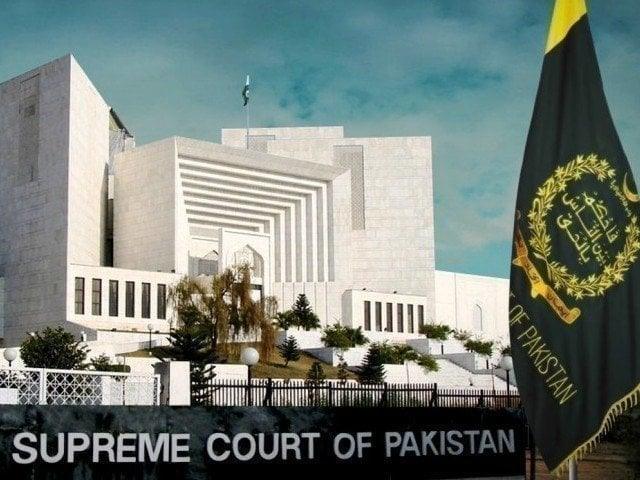Islamabad:
Contrary to the majority’s opinion from a full bench of the Supreme Court, which on July 12, 2024, ordered the allocation of reserved seats to PTI, says a constitutional bench (CB) that reviewed the order that PTI itself is blamed for not getting reserved seats after February 2024 selection.
While consultation reviews in the case of reserved seats, the judges wonder why PTI did not challenged the Election Commission in Pakistan (ECP) orders to declare his candidates independently despite the prominent lawyers contesting elections on the PTI ticket.
The judges also consistently defend on January 13, 2024 by the Supreme Court to declare the election of the PTI Intra Party illegally. The order had resulted in removing the party for its electoral symbol
Even the judge, who himself raised serious questions about the execution of the ECP in his minority view, criticizes PTIS ‘bad legal strategy’ for getting reserved seats and the decision of PTI -backed candidates to join Sunni Ite Had Council (SIC), which had not disputed in the parliamentary elections.
A bench with three members led by the former Chief Justice of Pakistan Qazi Faez Isa announced the verdict in the PTI election in the election at night on January 13, 2024-the last date of submission of party symbols in the general elections.
Since May 9, 2023, PTI has accused the government of using compulsory tactics of pushing its leaders to leave the party. Even during the election, PTI -supported candidates were not allowed to run any campaign. Even nomination papers from some candidates were snapped before their submission.
The bench led by Justice Qazi Faez Isa had forced the ECP to announce the date of parliamentary elections in consultation with the president. However, there was a serious clash between the former CJP and PTI as the latter had filed a president’s reference for his removal under its rule.
After January 13, 2024 order, PTI had lost hope that it could get any relief from the Supreme Court led by CJP ISA, and after the intra-party election fund order, PTI adviser Latif Khosa had left for the despised petition that was filed against ECP so as not to comply the choice.
Some lawyers ask why CJP ISA did not state the petition against his order of hearing to clean up the ambiguity if the ECP interprets the order by declaring PTI candidates independently.
They notice that if SC could issue two clarifications in the Mubarak Sani case, why couldn’t it take notice of incorrect interpretation of its important decision by the ECP, which is a constitutional body.
Constitutional Benches (CBS) have also been established in the Supreme Court and high courts considering the 26th constitutional amendment which, according to PTI, was adopted by means of compulsory tactics.
CB Hearing Review Petitions against SC’s 12 July 2024 order in the seat case also includes judges elected by the executive members of the Legal Commission in Pakistan (JCP) after reviewing the 26th amendment.
There is no explanation of why the CB Committee did not make a recommendation to JCP on the inclusion of the six judges who were part of the original bench that heard the seats of reserved seats.
Currently, no one on the bench is supporting the majority decision in the case for reserved seats. Even two signatories of the majority judgment do not adopt any remark in favor of the verdict on July 12.
Justice Ali Baqar Najfi has surprised by using the term “partisan” for the majority decision. Only Justice Salahuddin Panwar shows interest in reading the majority judgment.
Justice Muhammad Hashim Khan Kakar said those who are junior judges should defend the verdict during review. However, he urged the SIC adviser Faisal Siddiqi to highlight important points of the provision at this time.
Justice Aminuddin Khan, who leads the bench, is consistent in his approach. He has consistently raised questions about the relief given to PTI by majority judges on July 12, 2024.
Justice Mussarat Hilali, who was a member of the bench, who had given on January 13, 2024-order in the intra-partic election case, expresses concern that the majority decision discussed the PTI Party’s election case, which was not contested before them.
Faisal Siddiqi said the majority’s judge criticized the ECP’s behavior, but they did not question the 13th January order. Siddiqi tries to read the important parts of the verdict on July 12 before the bench.
There is a lot of slim chances that the majority judge will be maintained by this bench.
There is a criticism that the majority of the judges had made legal overreaction in this case. On the other hand, PTI lawyers say that majority judges had tried to restore democracy, which is the prominent feature of the Constitution. The hearing of the case is postponed until June 16.
If PTI could not get reserved seats, the situation may not change, but if the ruling parties get reserved seats, they will easily be able to get a two -third majority in parliament, enabling them to change the constitution.
PPP through Farooq H naek and Asad Abbasi have submitted written answers in the case Reserved Seats. PPP said the order investigated is contrary to established principles of constitutional interpretation.
By preparing a procedure that is not considered under the Constitution, the order takes itself into regulatory territory, in contrast to the constant case law of this honorary court that “the function of the court is interpretation, not legislation.”
The answer states that it is a firm principle of this court that when the law prescribes a certain way and procedure to do something, it must be followed strictly without deviation. This principle alone guarantees the revocation of the order investigated, added it.



